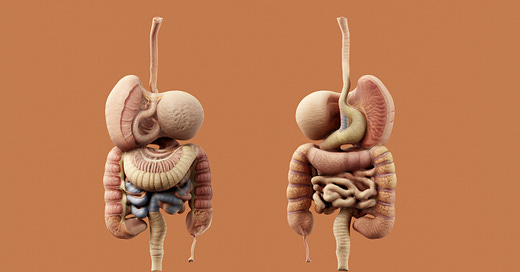The real causes of reflux (and ways to find them)
Your doctor will never mention these things to you. Instead they'll prescribe a PPI and send you on your way.
Quick disclaimer: nothing in here is medical advice or meant to replace it. It is not intended to diagnose, treat, prevent or cure any medical condition. I am not a medical doctor, and everything shared here is based on personal experience and research.
Reflux is one of the most frustrating and uncomfortable digestive issues to deal with.
It can feel like your insides are on fire, your chest is under pressure and even the tiniest mistakes with diet can send everything spiraling out of control.
I’ve seen horror stories firsthand. Clients with acid so aggressive it damaged their teeth, damaged their esophagus and left them stuck on high-dose PPIs for 15+ years.
The approach 99% of doctors take? Throw a PPI at it and move on.
But reflux isn’t caused by one thing, and it doesn’t have one solution. Despite how many doctors treat it that way.
After helping many people work through reflux, one thing is clear: Reflux is a symptom of deeper dysfunction, not the main issue itself.
One of my clients recently reduced their PPI use by 75%, is feeling better than they have in years and is on track to get off them completely. Not because we targeted acid, but because we addressed the real root causes.
In one of my recent posts, I talked about the most common causes of reflux I’ve seen along with a specifical example of someone I worked with who was dealing with reflux and what we focused on to get it under control.
You can read that here.
Since there isn’t a single cause or solution to reflux, an important early step is to focus on what’s actually contributing to it. High stomach acid can be a factor, but in my experience it’s often not.
So, lets run through some of the most common factors involved and how they can be detected.



